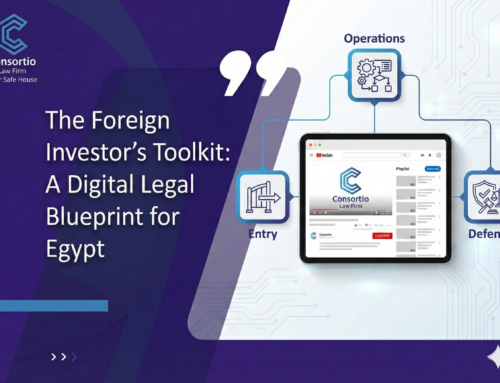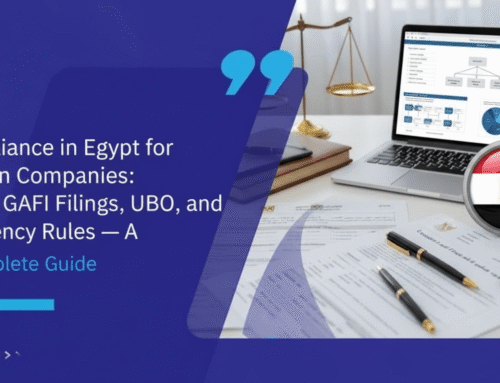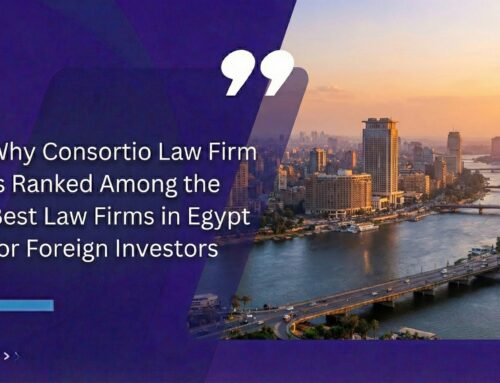In a time where intellectual property, digital assets, and even emotional investments are at the forefront of modern economies, understanding the true essence of Rightful Ownership can transform the way we engage with the world around us. It’s more than a legal right; it’s the cornerstone of success and trust. When you own your ideas, innovations and assets with clarity and integrity, you unlock the full potential of your business, ensuring your hard work is recognized, your brand remains strong and your business thrives in an ever-evolving market.
The Legal Foundations of Rightful Ownership for Business in Egypt
The legal foundations of rightful ownership for businesses in Egypt are influenced by various laws, regulations and legal principles. These frameworks are designed to ensure that ownership rights are clearly defined, protected and enforceable.
Here’s an overview of the key legal foundations for rightful ownership of businesses in Egypt:
-
Constitutional Protection
The Egyptian Constitution guarantees the protection of private property and ownership rights, with safeguards against expropriation except for public benefit.
-
Commercial Code (Law No. 17/1999)
Governs business formation, operation and ownership transfer, including contracts and business structures (LLCs, JSCs). It ensures ownership rights are legally protected.
-
Civil Code (Law No. 131/1948)
Provides general rules on property ownership, possession and contract enforcement, ensuring clear ownership rights for business assets.
-
Investment Law (Law No. 72/2017)
Encourages investment, providing guarantees for foreign ownership (up to 100% in most sectors) and protection against unfair treatment or expropriation.
-
Real Estate Laws
Businesses must obtain legal title deeds for property and comply with zoning laws. Foreign ownership is generally allowed with some restrictions on agricultural land and areas near borders.
-
Intellectual Property (IP) Rights
Protected by Law No. 82/2002, which secures businesses’ rights over their intangible assets like patents, trademarks, and copyrights.
Learn more about Intellectual Property (IP) protection and how to secure your rights through our direct service.
-
Tax Obligations
Businesses must comply with tax laws, including income tax (Law No. 91/2005) and VAT regulations.
-
Employment Laws
Regulated by Law No. 12/2003, which ensures businesses uphold employee rights, including fair compensation and Employment Law.
Explore our services on Employment Laws to ensure compliance and protect both employer and employee rights.
-
Company Law (Law No. 159/1981)
Governs company structures and shareholder rights, ensuring legal recognition of ownership and proper governance of business entities.
In essence, businesses in Egypt enjoy legal protections for ownership, whether for physical property, intellectual property or company shares. If you’re considering establishing a business in Egypt or acquiring ownership, understanding these legal foundations is critical to ensuring compliance and protecting your rights.
Common Disputes Over Rightful Ownership in Business
There are common disputes over rightful ownership in business that can arise from various issues related to property rights, contracts and other legal aspects.
Here are some of these common disputes including:
-
Disputes Between Business Partners
Disagreements can arise between partners over ownership shares, exit terms or management decisions. These conflicts often occur when ownership isn’t clearly defined in the partnership agreement.
-
Intellectual Property (IP) Ownership Disputes
IP disputes happen when ownership of patents, trademarks or copyrights is unclear, especially in collaborations. Licensing issues or unauthorized use of IP can also cause conflicts.
-
Business Assets Ownership Disputes
Conflicts over physical assets like real estate or equipment arise when ownership isn’t clearly established. Issues often occur during asset transfers or if documentation is incomplete.
-
Shareholder Disputes
Shareholder disputes usually involve disagreements over share distribution, management control or new share issuance. Tensions can also arise over how the company should be run.
-
Real Estate Ownership Disputes
Disputes over business property often involve unclear title deeds, zoning issues or lease conflicts, particularly when terms are not well-defined.
-
Foreign Ownership Disputes
Foreign ownership conflicts happen when investors exceed legal ownership limits, causing legal challenges or forced sales, especially in countries with restrictions.
-
Breach of Contract or Fraud
Disputes arise when ownership agreements are violated or assets are fraudulently transferred, leading to conflicts over rightful ownership and control.
-
Disputes Over Dissolution of a Business
Conflicts over business dissolution often involve disagreements on how assets and liabilities are distributed, especially when there’s no clear plan in place.
The Impact of Fraud on Rightful Ownership Claims in Business
Fraud can have a significant impact on rightful ownership claims in business, as it undermines the legitimacy of ownership rights and disrupts the legal framework protecting those rights.
Here’s how fraud can affect ownership:
-
Invalidating Ownership Transfers
Fraud, like forged signatures, can nullify ownership transfers, restoring rights to the original owner and undoing fraudulent deals.
-
Undermining Trust in Contracts
Fraud makes contracts unreliable. Fake claims or misleading data can void agreements, creating ownership disputes.
-
Financial and Reputational Damage
Fraud causes financial losses and damages reputation, weakening the rightful owner’s ability to defend ownership.
-
Complicating Legal Ownership Disputes
Fraud complicates legal ownership claims with false documents, making it harder to prove rightful ownership.
-
Legal and Regulatory Consequences
Fraud can result in criminal charges and the voiding of transactions, complicating ownership claims and legal processes.
-
Impact on Business Operations and Stability
Fraud disrupts business operations and destabilizes the company, making it harder to defend ownership rights.
-
Loss of Assets
Fraud, like embezzlement, leads to asset loss, weakening ownership claims and complicating recovery.
Fraud can distort rightful ownership in business by creating legal, financial and operational complexities that hinder the ability of legitimate owners to defend their claims.
Addressing fraud over rightful ownership swiftly through proper legal support is crucial to prevent such disputes.
How “Consortio” Help to Protect Your Rightful Ownership Rights?
Rightful Ownership is the ultimate key to long-term success and security. It’s not just about holding legal titles, but it’s about protecting your ideas, intellectual property and hard-earned achievements in a way that builds trust, fosters growth and establishes your brand as a force to be reckoned with.
Thus, protecting your rightful ownership rights in business is essential, ensuring legal clarity, prevent fraud and minimize disputes.
“Consortio Law Firm” can help protect your rightful ownership rights by offering expert legal services tailored to business needs. Here’s how we can assist:
- Drafting Clear Contracts: Ensuring ownership agreements are legally solid.
- IP Protection: Registering and safeguarding patents, trademarks, and copyrights.
- Due Diligence: Conducting thorough checks on acquisitions and partnerships.
- Enforcing Contracts: Ensuring compliance with ownership terms.
- Dispute Resolution: Resolving ownership conflicts through Litigation or mediation.
- Legal Audits: Regularly reviewing business structures for risks.
- Compliance Advice: Helping you stay compliant with local and international laws.
- Asset Protection: Developing strategies to protect business assets.
- Tailored Legal Advice: Offering personalized legal support for ownership issues.
- Litigation Support: Representing you in court if ownership is challenged.
Don’t let ownership disputes or fraud jeopardize your business. “Consortio Law Firm” is here to help you safeguard your rights with expert legal services.
Get in touch Today for a consultation and take the first step toward securing your ownership rights with confidence via:
Phone number: (002-01028806061).
Email: (Info@consortiolawfirm.com).
FAQ
-
What is rightful ownership?
Rightful ownership refers to the legal right or entitlement a person or entity has over a property or item, typically established by law, purchase, inheritance or other legitimate means.
-
How is business ownership determined?
Business ownership is determined by legal documents such as articles of Incorporation, partnership agreements, stock certificates or a purchase contract.
-
Does a business need a formal ownership agreement?
Yes, to avoid disputes, it’s highly recommended to have a formal ownership agreement, especially in partnerships, corporations or joint ventures.
-
What documents are needed to prove business ownership in Egypt?
Proof of ownership can include the Commercial Register entry, tax registration certificate, shareholder agreements, articles of Incorporation and any relevant licenses or permits.
-
Can a business owner transfer ownership to someone else?
Yes, a business owner can transfer ownership to another party through sale, gifting or bequeathment, often involving legal documentation.
-
Can a business owner lose rightful ownership?
Yes, through liquidation, fraud, dissolution of the company or if ownership is transferred or revoked by agreement or legal action.
-
Can foreigners own a business in Egypt?
Yes, foreigners can own businesses in Egypt, subject to certain restrictions. For example, they can own up to 100% of businesses in most sectors, but there are restrictions in areas like land ownership or certain industries (e.g., defense).





